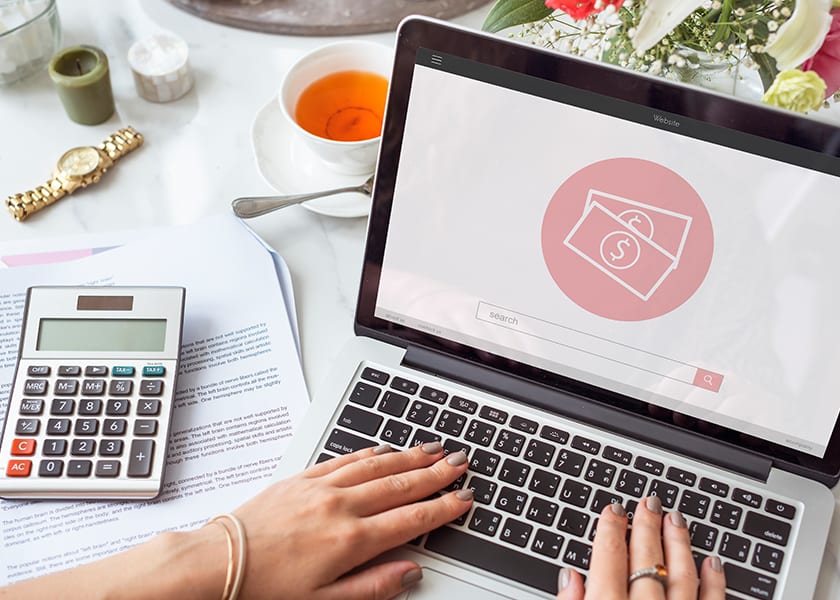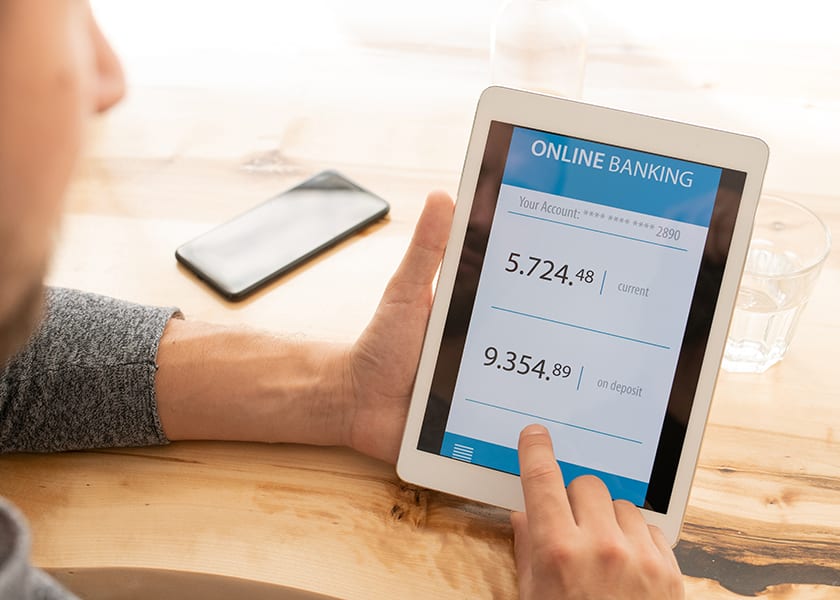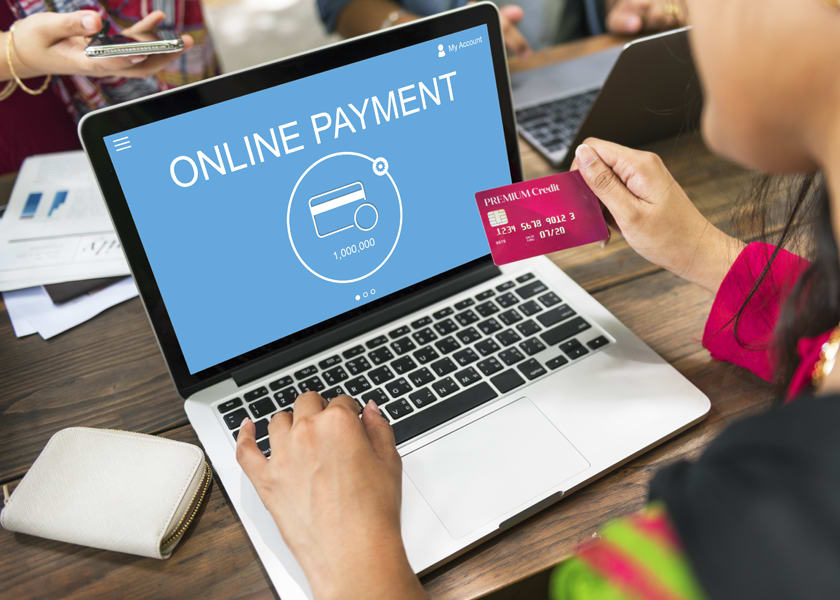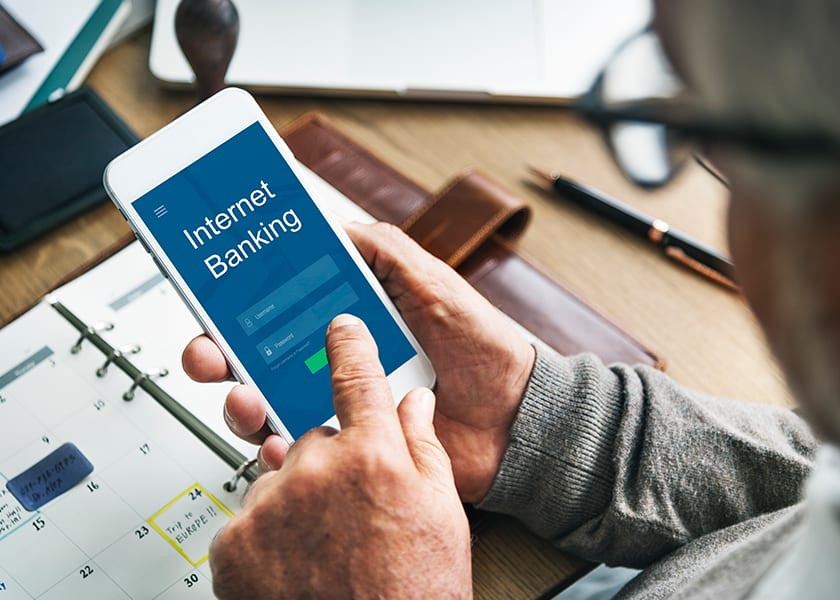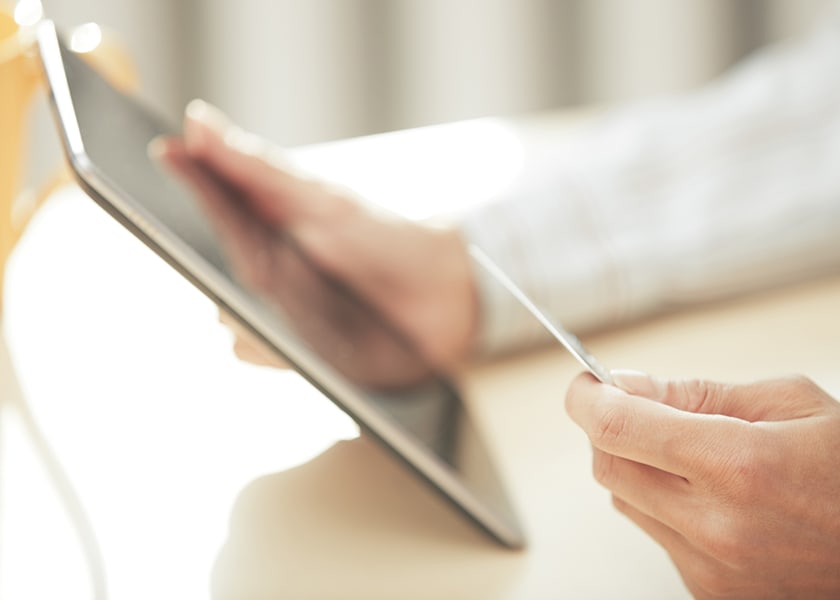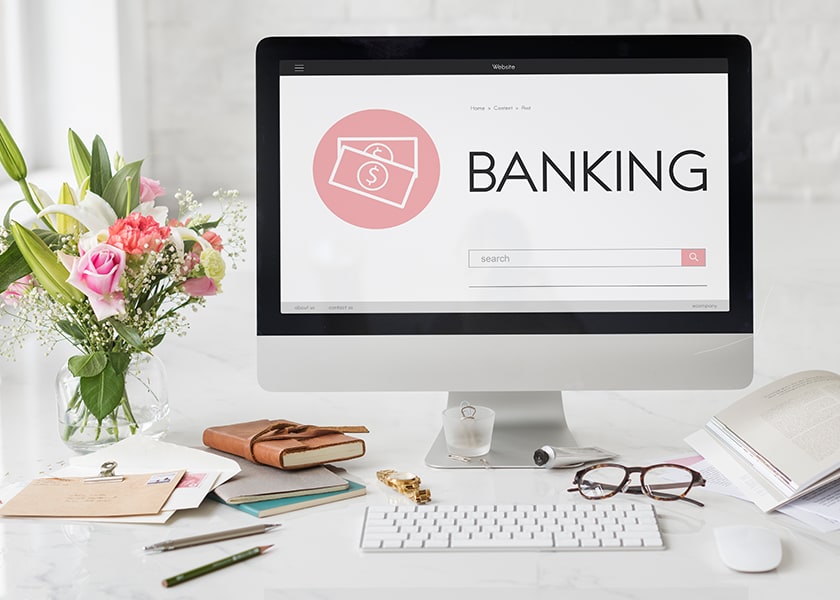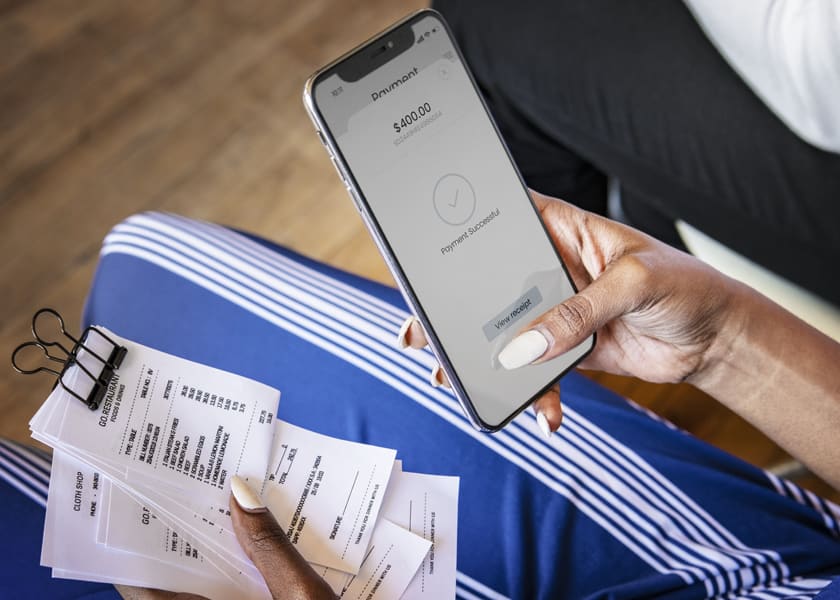Best Online Bank
Chase 
State Of The Art Online Banking
- Bonuses for New Accounts
- Multiple Account Options
- Very Business Friendly
- Unlimited Electronic Deposits
What is online banking?
Online banking gives you peace of mind knowing your information is being protected by advanced online security systems. And, when you bank online, you'll have access to a large variety of accounts including savings accounts, checking accounts, and credit cards.
Why should I bank online?
If you're like most people today, you're busy. And, it's no secret that the faster we access our money and information, the more time we save. With online banking, you can do your banking any time of day or night from the comfort of your home. That means you can check your account balances without having to stand in line, transfer funds between accounts without leaving home, and deposit checks electronically.
What can I do with online banking services?
Banking online allows you to perform most of the same transactions that you would normally do at your local branch - all from the comfort and convenience of your own computer and with no extra time commitment on your part. That means you can pay bills online, transfer funds between accounts, deposit checks through your home scanner or by taking pictures of the front and back of the check with your mobile device, find out if an item has cleared, review account activity, and print checks.
You can even view all of your account balances at a glance to make sure that they are correct. If not, you can make any necessary corrections and advise the bank of your changes as soon as possible to avoid overdrafts and other fees.
What types of accounts can I access online?
If you have a checking account, savings account, investment account, or credit card – just about every financial product – you'll be able to access it from wherever you have a computer and the Internet, whether it's at home or away on business. And, most banks allow customers to pay their bills online with a checking account.
What are the benefits of banking online?
One of the many benefits of doing your banking online is that most sites provide links to other financial services such as mortgages, insurance, and brokerage accounts. That means you can always get updated quotes for your auto policy or review the value of your portfolio when it is convenient to do so - all without leaving home.
And, if you prefer, some banks allow you to customize your online banking website with the features you use most often right on the home page so they are readily accessible. You can also save time by paying your bills online through your checking account and scheduling electronic transfers between accounts - all without having to write a check and mail it to each payee.
What is the downside of banking online?
While there are many benefits of banking online, there may be some things you're not able to do if you bank online exclusively. For example, you may need to deposit a check in person if it is written by someone outside your immediate family or must sign one when opening an account at your local branch. And, some banks don't offer all their products and services online such as certificates of deposit (CDs). Overall, the convenience and peace of mind you'll get from banking online more than outweigh any drawbacks.
How do I access my accounts and pay my bills?
It's simple to access your accounts and pay your bills online, but first, you need a computer, Internet service, and an account with the bank or credit union that offers online banking services. You can also use your mobile device to access your accounts and pay bills. Most banks make it easy for their customers by providing step-by-step instructions on how to get started with online banking. For example, you may be required to fill out an application form for the bank's online service that includes a set of security questions - just like when you open most accounts.
The questions typically ask about something only you would know such as the name of your first pet or the year you graduated from high school – or a combination of both - which ensures that no one else can access your accounts without your answers. Once you're plugged in, most banks allow you to review all account balances and activity, transfer funds between accounts, pay bills online, and scan a check for deposit. You also have the option of scheduling recurring transfers so they occur automatically on a specific date each month.
In addition to paying your bills online with your checking account, you can transfer funds from another bank account or investment firm where you have an account to cover the amount you owe.
You can usually access a variety of calculators and tools on the bank's website that will help you figure out your monthly payment, savings or loan repayments. For example, if you have a credit card, most banks have an online calculator that lets you see how much interest you're being charged on transactions as well as the minimum payment required each month.
What else should I consider before banking online?
Before choosing to bank online, it's important to ask yourself what features and benefits do you need and want from your financial institution. For example: Do you like the convenience of having access to your accounts and making transfers whenever you want – day or night? Would you prefer to cancel paper statements and have access to your monthly credit card statement online? Do you ever misplace a check or ATM card and need a way to quickly order a replacement?
If you're pleased with the branch services of your current bank or credit union, it may not make sense to switch financial institutions just for the sake of banking online. But if you want more convenient banking, you may want to consider opening an account with the bank that offers the best combination of product features and pricing along with online services.
You also need to consider what type of computer or mobile device you will be using to access your accounts. Most banks provide step-by-step instructions for setting up an account on their website, but you will need a computer to open a basic checking account. If your only access to the Internet is from a PC at work, for example, you'll need to coordinate with others in order to transfer funds between accounts or pay bills online. In addition, not all banks offer mobile apps that allow their customers to review account balances and activity on a smartphone or tablet.
Some banks, however, may waive monthly account fees or offer other incentives if you agree to receive electronic statements and let the bank send text alerts for any significant changes in your account activity.
What type of security measures are used?
Banks spend millions each year on equipment, software, and services designed to protect customers from fraud and identity theft when they access their accounts. For example, financial institutions use complex firewalls and encryption to protect customer data when it's transferred between bank computers and the Internet. Financial firms also provide customers with instructions on how to notify them if you think your account may be at risk so they can take steps to block the suspicious activity or investigate fraudulent transactions.
Conclusion
Banking online is a convenient way to manage your money, but not everyone will want the same features from their bank. If you're interested in more convenience and control over how you access your accounts, then banking online might be for you. However, if there are no particular benefits associated with going digital or if it's inconvenient for some reason (e.g., lack of computer at home), don't feel pressured - many banks offer branch services that can still provide what you need!

